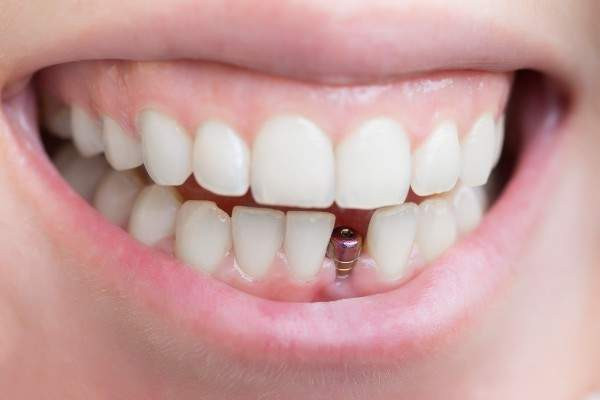views
Restoring your smile with dental implants is a life-changing decision, and choosing the right type is just as important as the treatment itself. In Newcastle, patients now have more implant options than ever, tailored to meet their specific oral health, bone structure, and aesthetic goals. From single-tooth replacements to full-arch solutions, understanding the available implant types helps ensure the best outcome. This guide walks you through the most common implant types and what factors influence the ideal choice for your unique situation.
Why Implants Are the Gold Standard in Tooth Replacement
Dental implants are widely regarded as the most effective way to replace missing teeth. Unlike removable dentures or bridges, they offer superior strength, comfort, and longevity.
Key benefits include:
- Integration with the jawbone for long-term stability
- Prevention of bone loss and facial collapse
- No impact on surrounding natural teeth
- Natural look and feel
- Durable enough to last 15–25 years or more with proper care
These advantages make implants the first choice for patients seeking a fixed, natural-looking solution.
Factors That Influence Implant Type
Choosing the right implant involves more than just filling a gap. Several individual factors determine which approach works best.
Your dental team will assess:
- The number of missing teeth
- The location of the gap
- Bone density and jaw condition
- Oral hygiene and overall health
- Budget and long-term goals
- Desire for immediate or staged treatment
With proper evaluation, the chosen implant solution can provide both aesthetic and functional benefits that last for years.
Single-Tooth Dental Implants
This is the most common type of implant, used when only one tooth is missing. A titanium post is surgically placed into the jaw, followed by a crown that matches your existing teeth.
Ideal for:
- Patients missing one or two isolated teeth
- Those with strong jawbone support
- Gaps in visible areas that require aesthetic attention
Advantages:
- No need to alter adjacent teeth
- Easy to maintain
- Looks and functions like a natural tooth
Practices offering dental implants Newcastle frequently recommend single implants for simple, long-term restorations.
Implant-Supported Bridges
When several teeth in a row are missing, implant-supported bridges can restore them using just two or more implant posts as anchors.
Best suited for:
- Multiple adjacent missing teeth
- Patients who want fewer surgical sites than multiple implants
- Those with moderate to good bone health
Benefits:
- More cost-effective than individual implants for each tooth
- Maintains alignment and chewing function
- Helps preserve bone in the restored area
These bridges provide a stable, fixed solution with a high level of comfort and aesthetics.
Full-Arch Implants (All-on-4 or All-on-6)
This technique uses 4 to 6 implants to support a full set of upper or lower teeth. It's ideal for patients with complete or near-complete tooth loss.
Ideal candidates:
- Patients who currently wear dentures
- Those who want a permanent alternative to removable options
- Individuals with sufficient jawbone or who are open to bone grafting
Key benefits:
- Immediate placement and same-day smiles in many cases
- No need for adhesives or daily removal
- Improved confidence in eating and speaking
Dental implants Newcastle clinics increasingly recommend full-arch solutions for their durability and immediate transformation.
Mini Dental Implants
These implants are smaller in diameter than traditional implants and are often used when bone volume is insufficient for full-sized posts.
Recommended for:
- Supporting lower dentures
- Smaller tooth replacements like incisors
- Patients who cannot undergo bone grafts
Pros:
- Less invasive placement procedure
- Faster healing time
- More affordable than full-sized implants
However, they may not offer the same longevity or support as traditional implants, especially in areas with high bite force.
Zygomatic Implants
Used when upper jawbone density is severely compromised, zygomatic implants are anchored into the cheekbone instead of the jaw.
Reserved for:
- Complex cases where conventional implants aren’t viable
- Patients who’ve experienced significant bone loss
- Individuals seeking an alternative to sinus lifts or bone grafts
Why they matter:
- Avoids extensive grafting procedures
- Enables full-arch restorations when other methods fail
- Offers immediate function in some cases
Due to their complexity, this treatment should only be performed by highly experienced implantologists.
Short Implants
Short implants, typically less than 8mm in length, are used when vertical bone height is limited, often in the back of the mouth.
Suitable for:
- Molars or premolar areas with reduced bone height
- Patients avoiding sinus lifts or vertical bone grafts
Advantages:
- Minimally invasive compared to augmentation surgeries
- Reduced treatment time
- Preserves more natural bone
These implants are becoming a popular alternative when anatomical limitations exist.
Choosing to Combine Implants and Orthodontics
Before placing implants, some patients require orthodontic treatment to create space or align teeth properly. This ensures the restoration fits precisely and maintains bite balance.
How invisalign Newcastle helps:
- Aligns crowded teeth before implant placement
- Corrects bite issues that could compromise crowns
- Allows proper spacing for bridges or implants
- Enhances final symmetry and aesthetic results
- Can be worn discreetly with minimal disruption
Invisalign Newcastle providers often work in conjunction with implant specialists to ensure seamless treatment and results.
Comparing Dental Implant Types
|
Implant Type |
Use Case |
Bone Requirement |
Invasiveness |
Typical Lifespan |
|
Single-Tooth Implant |
One missing tooth |
Moderate |
Low |
15–25+ years |
|
Implant-Supported Bridge |
Several missing teeth in a row |
Moderate |
Medium |
15–20 years |
|
All-on-4/All-on-6 |
Full arch replacement |
Moderate-High |
Medium |
15–25+ years |
|
Mini Implants |
Small gaps or denture support |
Low |
Low |
10–15 years |
|
Zygomatic Implants |
Severe upper bone loss |
Very Low |
High |
15–20 years |
|
Short Implants |
Low vertical bone height |
Low |
Medium |
10–15 years |
This table helps patients compare options based on complexity, longevity, and suitability for specific needs.
Making the Final Decision
The best implant type depends on your unique oral health, lifestyle, and expectations. It’s important to have a detailed consultation and evaluation before committing to any treatment.
Questions to ask your provider:
- What are the pros and cons of each implant type for my case?
- Will I need any additional procedures like grafting or alignment?
- How long will treatment take from start to finish?
- What type of maintenance is required long term?
- What are the realistic results I can expect?
Clinics that offer comprehensive evaluations are more likely to provide satisfying, tailored solutions.
Long-Term Maintenance of Your Implants
All implant types require consistent oral hygiene and professional follow-up to ensure they remain healthy and functional.
Maintenance checklist:
- Brush and floss daily
- Use interdental brushes or water flossers
- Avoid smoking or chewing hard items
- Attend 6-monthly check-ups and cleanings
- Wear a nightguard if you grind your teeth
Proper care extends the lifespan of your implants and prevents complications such as peri-implantitis or gum recession.
The Emotional and Practical Benefits
Choosing the right implant type is not just a clinical decision—it has real impact on your confidence, lifestyle, and wellbeing.
Positive outcomes include:
- Freedom to eat a varied diet again
- Clearer speech and more confident communication
- A natural smile that boosts self-esteem
- Improved jaw health and facial support
- Long-term savings compared to temporary fixes
The right implant treatment can transform your life as much as your smile.
Conclusion
Selecting the right dental implant type is essential for achieving a stable, natural, and lasting result. Whether you need a single-tooth solution or a full-arch restoration, understanding your options allows you to make informed decisions that suit your lifestyle and goals. With personalised treatment planning, digital technology, and expert care from clinics like Smilo Dental Implants Group in Newcastle, you can feel confident about restoring your smile. From implants to Invisalign, each choice is an investment in comfort, appearance, and long-term oral health.





Comments
0 comment